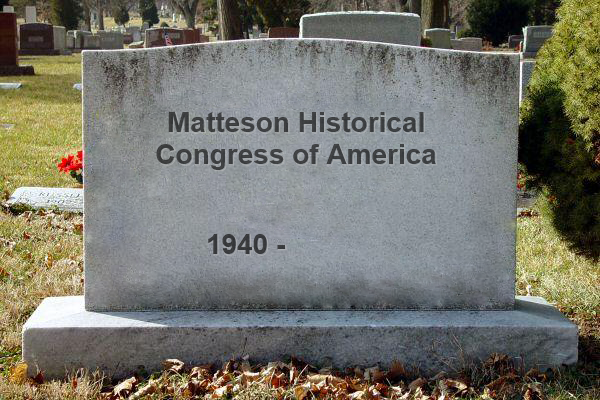Are Genealogical Societies In Trouble?
There are many types of historical and genealogical societies. Some of the largest groups are open to everyone. Others may be intended for people living in a particular state or region of the country. Others may be open to people of a certain ethnicity or heritage. And others still are open to people with a given surname or even those descended from a single individual.
There may be even greater interest now in family history and genealogy then there has been in the past. With televison series such as "Who Do You Think You Are?" and "Genealogy Roadshow" and the abundance of televised commercial advertising for sites such as Ancestry.com. The shows and ads keep coming so someone must be watching.
But at the same time membership in many genealogical societies appears to be declining. This is surely due at least in part to the ease in which information can now be obtained over the internet through sources such as FamilySearch, Ancestry, RootsWeb and a host of others (new sites seem to be springing up all the time). Not to mention social media, blogging, email etc.. The wealth of genealogical information available, both good and bad, with just a mouse click has never been greater or easier to acquire. These are surely wonderous times for modern researchers and family historians. With so many sources of information now so easily available, many no longer feel the need to belong to such groups. While larger societies may not experience a significant decline in membership due to their popularity or the large numbers of members they already hold, the smaller groups may have a difficult time filling their ranks.
Many societies are relying upon old and outdated methods in their struggle to remain relevant and offer little in incentives to cooerce prospective members to join. Besides the historical and geneologial information already in their possession, most offer nothing of real value for today's web savy family historian. Societies will have to come up with new and inventive ways to attract new members or they may fall by the wayside and become part of the history that they had once hoped to preserve.

Take the Matteson Historical Congress of America (MHCOA) for example. They exemplify much of what is wrong with most historical and genealogical societies today.
There was a time when the MHCOA could claim hundreds of individuals across the country as part of their membership. Their ranks were so large that states sometimes formed their own auxiliary chapters. States such as Michigan, New York, Pennsylvania, Rhode Island and Vermont either had their own chapters or hosted their own annual gatherings (reunions). Connecticut, Illinois, Massachusets, Michigan, Maine, New Hampshire, New York, Ohio, Pennsylvania, Rhode Island, Vermont and Utah have all been called upon in the past to host the annual MHCOA gatherings. The annual gathering of Matteson descendants was a big event no matter where it was held, often written about in the local newspapers. Now with declining membership due to attrition and other contributory factors described below, except for the occasional gathering in Rhode Island almost all occur within the state of New York where the majority of their last remaining members reside. Their annual gatherings as they exist now have been likened to be more of a social gathering with a bit of history thrown in.
The MHCOA is not unique. They offer little that provides anything of real value to potential members in the information age. They do publish a quarterly newsletter, "The Mattesonian" although it seems at times that they have difficulty filling it's pages with any current or interesting content. Yes they will still offer to have their "genealogist" help with an individual's Matteson ancestral line, but only if they first purchase a membership. And yet at the same time they still do not provide even their own members with a way to search or view online any of the genealogical data that they have collected over the years. Most genealogical data being shared is only made available at their annual gathering.
Members who may have ideas for a project or event or want a voice in deciding how funds are to be spent better plan on attending the annual business meeting (also held during the yearly gathering) or their voices will never be heard. Even the election of officers takes place only during the annual gathering. Outrageous as it may sound, not all members are even allowed to elect those that will represent them during the upcoming year. Only those in attendance at the gathering will be given the opportunity to vote! That system may have worked for them at one time when they still had the luxury of a large membership, but now it can only be viewed as dated and discriminatory. Is it really wise to put the future of your society in the hands of so few?
If this is an indication of how many societies are managed, then it should come as no surprise as to why people are choosing to rely solely upon other sources while forsaking the historial and genealgical societies of the past.
 Return to Articles Return to Articles
|